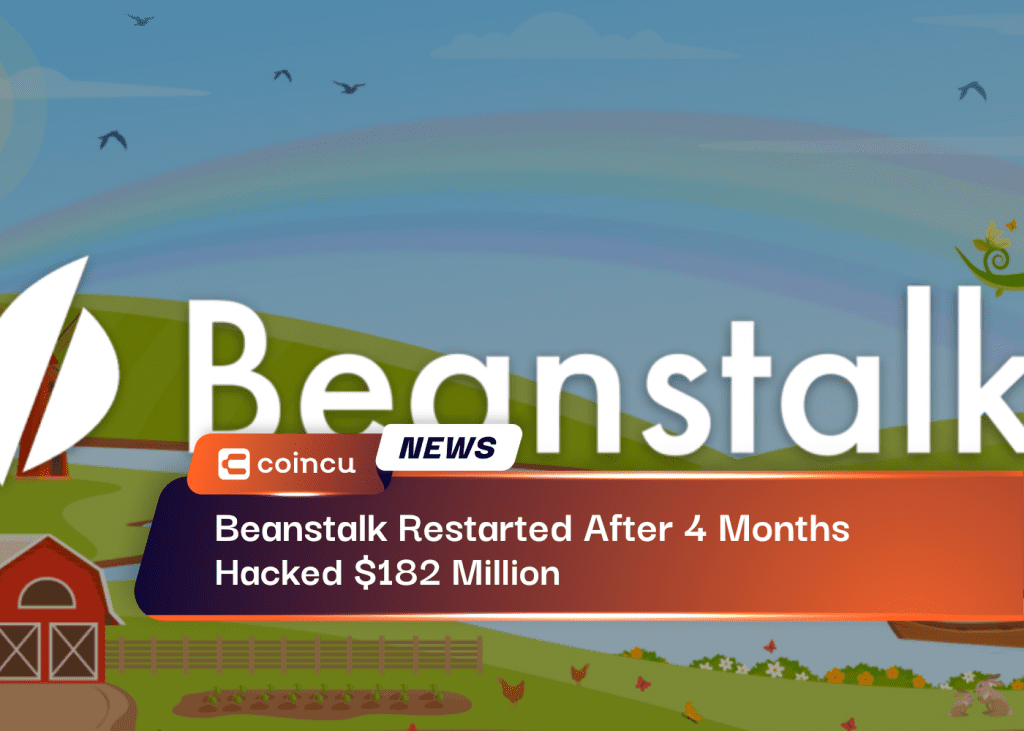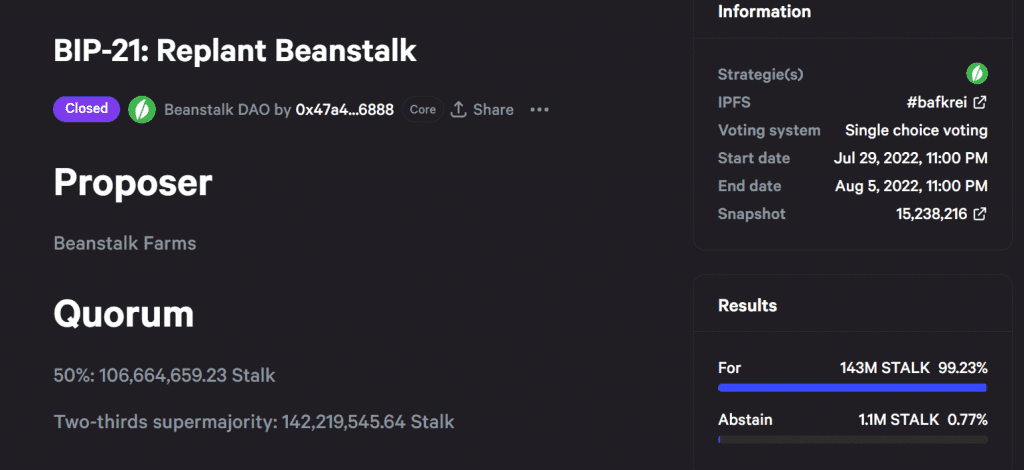The team behind stablecoin Beanstalk has restarted the project almost four months after it lost $182 million in a single mine. Voting has taken place and the result is over 99% in agreement.
Beanstalk Stablcoin Working Again After Being Hacked
According to a statement from the project, Stablecoin Beanstalk had a vote to make the decision to revive the stablecoin nearly 4 months after experiencing an attack that damaged up to $182 million. The results of the vote showed that more than 99% of stablecoin holders agreed to restart the project.
According to Beanstalk, its bean token is a decentralized stablecoin that relies on credit rather than collateral to keep its value somewhat close to the US dollar. The project made headlines in the middle of April after a hacker took advantage of its governance system to steal from it.
Two companies have examined the project’s code changes, and governance has been transferred to a community-run multisig wallet until a safe on-chain governance mechanism can be put in place, according to Beanstalk’s statement.
Back in May, the Beanstalk team recommended soliciting $77 million in an over-the-counter loan from private investors as the first step in the process to restart the stablecoin.
DISCLAIMER: The Information on this website is provided as general market commentary and does not constitute investment advice. We encourage you to do your own research before investing.
Join CoinCu Telegram to keep track of news: https://t.me/coincunews
Follow CoinCu Youtube Channel | Follow CoinCu Facebook page
Foxy
CoinCu News







